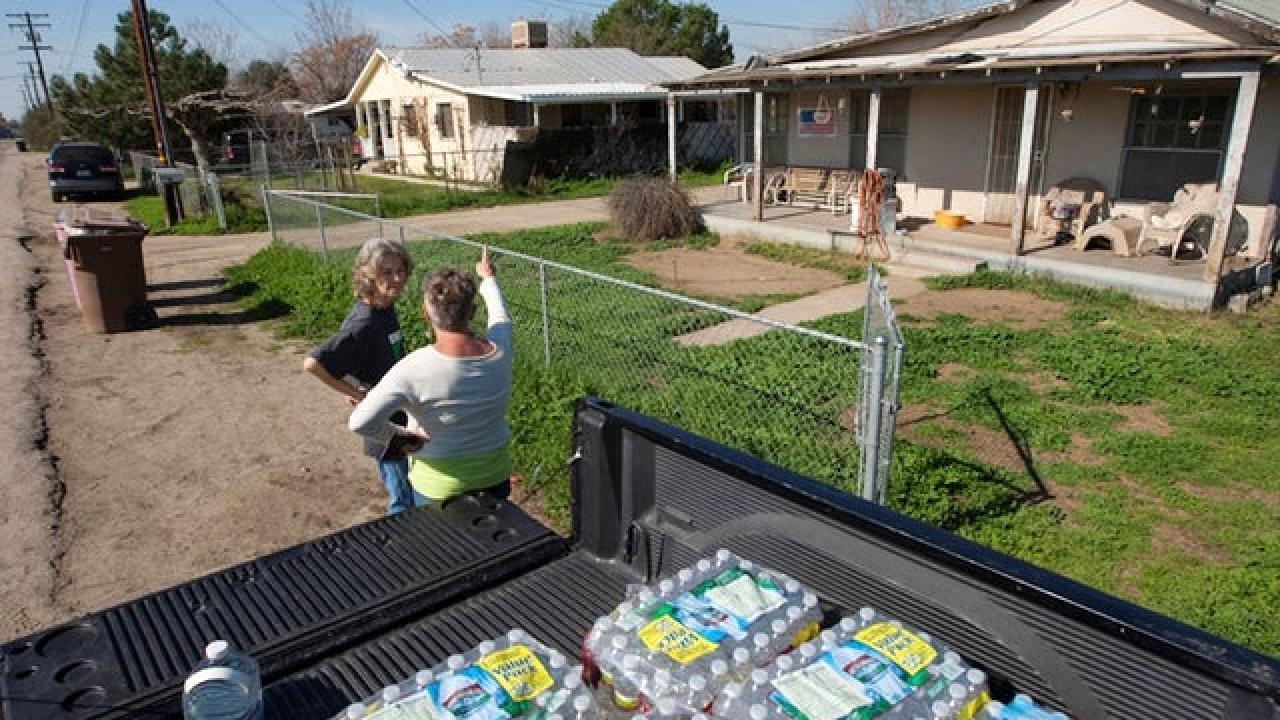
CRC in the News: New Report Finds Solutions for Water Justice Close at Hand
New Report Finds Solutions for Water Justice Close at Hand
New research from the University of California, Davis, uncovers data about the most vulnerable communities in California’s San Joaquin Valley and identifies ways to provide access to safe drinking water.
Published in Water Deeply 04/06/18, Written by Tara Lohan (@taralohan)
DURING THE HEIGHT of California’s drought, hundreds of residential wells went dry in the tiny community of East Porterville, putting it in the national spotlight. But a lack of water is not the only problem faced by small communities like East Porterville in California’s San Joaquin Valley – many also suffer from chronically contaminated water.
A new report from the Center for Regional Change at the University of California, Davis, examines the most vulnerable communities in the valley – those known as disadvantaged unincorporated communities (DUCs). These low-income communities are outside city boundaries and often lack basic services.
The researchers looked at the nearly 350,000 residents living in 450 DUCs in the San Joaquin Valley, and mapped which communities were impacted by unsafe drinking water and how far they were from public water systems serving clean water.
Most of the communities rely on groundwater, and the valley’s aquifers are some of the most polluted in the country. Providing adequate treatment and infrastructure is beyond the financial reach of many of these small DUCs.
Although help is not that far away. While DUCs are outside of cities, most are not remote. The biggest hurdle to finding safe drinking water isn’t distance. “Instead, the main obstacle may be the lack of political will to mobilize the economic resources necessary to extend city services to these neighbors,” the report found.
Water Deeply spoke with report co-author Jonathan London, an associate professor in the Department of Human Ecology and the director of the Center for Regional Change at U.C. Davis. READ MORE
